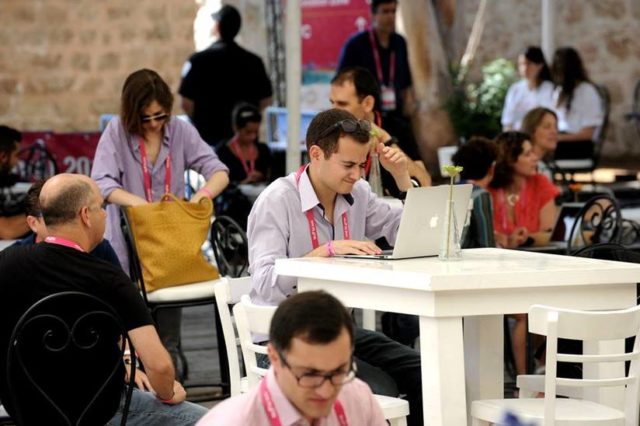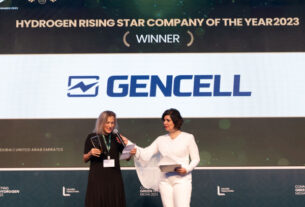$12 billion raised in 128 Mega rounds (over $50m each); average funding deal: $9.37 million, according to a joint report by IVC and law firm Zysman, Aharoni, Gayer & Co.
Key findings 2010–2019:
- $39.1 billion raised by Israeli tech companies
- $12 billion raised in 128 Mega rounds (over $50m each)
- Average funding deal: $9.37 million
- $5.82 billion invested by Israeli VC Funds in the last decade
- Since 2010, the total amount raised per year grew 400%, the number of deals grew 64%
- VC-backed deals raised a record high amount of $6.4 billion in 2019 – the highest amount since 2010
Over the past decade (2019-2010), Israeli startups have raised $39.1 billion, according to a report published Wednesday by research firm IVC and law firm Zysman, Aharoni, Gayer & Co. (ZAG-S&W).
Since 2010, capital raising by Israeli Hi-Tech has grown by a whopping 400% and the number of deals by 64%. 2018 – 2019 were special years. The funding rounds grew larger in which fewer startups raise more capital. The year 2019 contributed $8.3 billion, in 522 deals. About a fifth of that amount, showing a significant jump of about 30% compared to the 2018 amount of $6.35 billion. The number of deals declined from 2018’s 532 deals.
Seed Rounds
Seed is the only type of round that has shown a downward trajectory toward the end of the decade, in both amounts and number of deals: Seed round amounts shrank in 2019 to $148 million compared to $169 million in 2018.
The number of Series A deals jumped by 300% during 2010–2019, while the capital raised by them soared eight-fold compared to 2010. In 2019, later rounds continued to attract large amounts of capital, raising $2.87 billion compared to $1.91 billion in 2018.
Seed rounds are the only round that experienced a downward trend towards the end of the decade, both in total capital and in the number of transactions. The total capital raised in seed rounds in 2019 was reduced to $148 million, compared to $169 million in 2018. In contrast, later rounds A and later rounds continued to grow.
Adv. ShmulikZysman, the managing partner at Zissman-Aharoni-Geyer (ZAG) law firm, calls the phenomenon “venture capital with less risk.”
He said: “The final quarter of 2019, and the entire year of 2019, symbolize the clear and consistent trend of the Israeli high-tech industry: tremendous growth and frequent record-breaking. This growth is partly due to the growing foreign capital invested in the Israeli high-tech industry. Israeli funds are also taking part, with total investments of these funds in 2019 more than 30% higher than in 2018. An interesting characteristic of the boost is the annual increase of tens of percent in capital raising in a wide range of fields, from software and the internet through life sciences to semiconductors.”
The mega-deals, deals of more than $50 million each, broke a record in 2019: 41 huge deals drew 50% of total annual capital. In 2019, there was also an extraordinary number of particularly large capital raising rounds – 20 rounds of $100 million and more – an amount that for years characterized beautiful exits. In comparison, in each of the previous years in the last decade, the number of these big rounds were five or less.
The two biggest fundraising rounds in the past year belonged to insurance startups –Lemonade with $300 million and Next Insurance with $250 million. Cybereason $200 million round—were all made during the last year of the decade. San Francisco based Hippo founded by Israelies raised $100 million.
Fintech continues with success: Fundbox raised $176 million, Risquipade raised $165 million, BlueVine $103 million, and Rapyd $100 million.
IVC CEO Guy Holtzman said, “The continued increase in the amounts invested in these companies, which is due to the entry of new investors as Israeli and foreign private equity funds.” Holtzman said he believed the trend would continue in 2020.
The proportion of Israeli venture capital funds in fundraising has shrunk over the past decade to $ 1.1 billion in 2019. That’s 13% of the total – similar to their average share over the last decade.
Capital Raising by Sector
Artificial intelligence companies’ capital raising has skyrocketed over the past decade, reaching $3.7 billion in 199 deals in 2019. Eighteen deals, each over $50 million, accounted for 55% of the amount.
Cyber security tech companies raised $1.88 billion. Deal numbers retained 2018 levels. Fintech companies attracted $1.7 billion. The number of deals kept the five-year average.
The software sector continued to lead capital raising in 2019, reaching $4.4 billion in 2019, an increase of almost 50% compared to 2018. The increase was due to 26 deals, each over $50 million, that captured 58% of the total amount raised in the software sector. Life sciences companies raised $1.37 billion in 121 deals in 2019 compared to $1.17 in 102 deals in 2018.
Israeli Venture Capital Funds
Israeli VC funds’ share in the capital raising declined during the past decade to $1.1 billion in 2019, a 13.3% share of the total amount. The level of number of deals by Israeli VCs in 2019 remained in the mid-range for 2010–2019.
Predictions for 2020
Barring any dramatic changes in the macroeconomics conditions, the Israeli private market will continue to attract investors. Therefore, IVC estimates that the allocated capital for large and more established companies will continue to grow.
The number of first investments is expected to continue the slowdown. This trend, first recognized in 2018, expanded in 2019 and will not change course in the coming year.
AI and cyber-security tech companies will continue to be the most attractive for investors.
Several Israeli start-ups made IPOs in 2019, and the pre-IPO rounds in 2019 suggest that more companies will explore the IPO option in 2020.
Read more about: Investments, Israeli Startups




